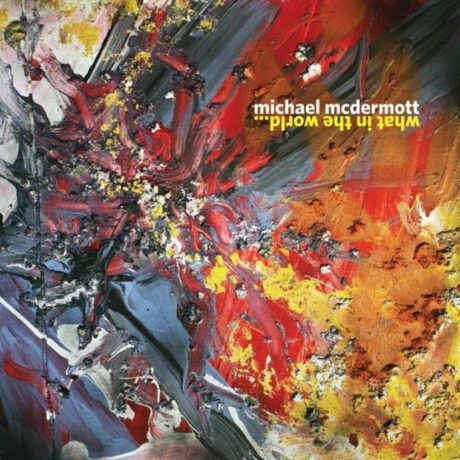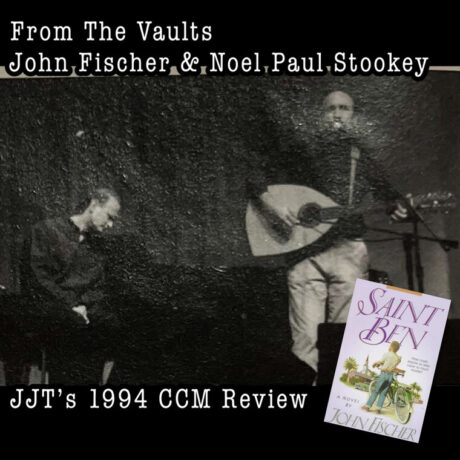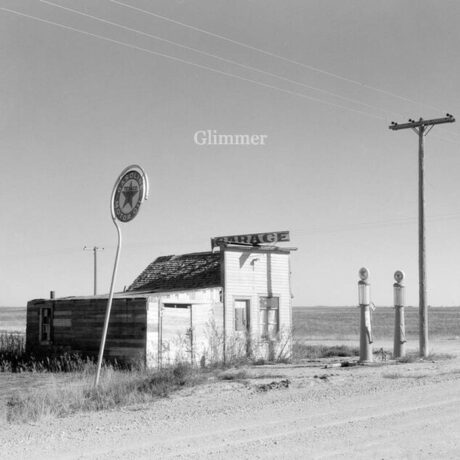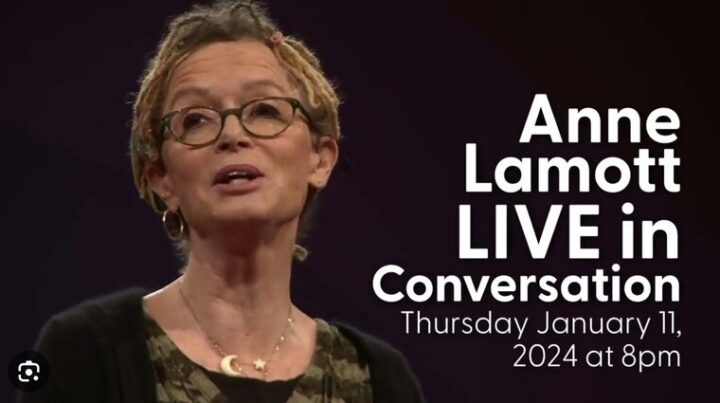Michael McDermott’s What In The World; Chicago-Style Americana
 Michael McDermott’s songs burn like embers in a campfire that some wanderers were sure they had snuffed out, but have the potential to take the whole damn forest down. All they need is the right combination of oxygen and fuel and BOOM – this whole place will be talking about them forever. That’s because these are stories that are truer than the headlines, deeper than Lake Michigan, and as dark, bright, and glimmering with hope as a bitterly cold winter sky. Like many great secrets, though, this one draws a small tribe – hobos around a burning barrel, listening to generous helpings of empathy, honesty, and grace.
Michael McDermott’s songs burn like embers in a campfire that some wanderers were sure they had snuffed out, but have the potential to take the whole damn forest down. All they need is the right combination of oxygen and fuel and BOOM – this whole place will be talking about them forever. That’s because these are stories that are truer than the headlines, deeper than Lake Michigan, and as dark, bright, and glimmering with hope as a bitterly cold winter sky. Like many great secrets, though, this one draws a small tribe – hobos around a burning barrel, listening to generous helpings of empathy, honesty, and grace.
McDermott should be both legendary (and dead) by now. Thank God for grace. The way he filtered folk-rock through a decidedly Chicago filter in the early days of the alt-rock / neo-folk renaissance of the late 80s was enough to land him a major label record deal right out of high school. His first single, “A Wall I Must Climb” was a minor hit on MTV and college radio, but a massive hit in his hometown and a few other markets. It also happened to be a great song. His characters, from blue-eyed barmaids to serial killers, all had a certain accent.
And like his many great urban characters, McDermott has been a street fighter since day one. Of course, his greatest adversary for most of the last thirty years was himself, but that’s certainly not unique. The problem with early success is that it is hard to replicate. Despite raging critical success and continued niche love in certain markets, McDermott lost his major label deal and descended into years of self-destruction, substances, and spiraling. The songs kept coming, though, often sounding like breadcrumbs being left by a boy heading into a dark wood. Eventually, against all odds, our hero found his clearing in that wood, a parting of the clouds, or whatever other grandiose metaphor you prefer, and made his pivot. He’s been clean and sober for six years and has been delivering some of the best work of his amazing thirty-year career. But his latest, What In World, may be the best album he has yet crafted. It contains, in nearly equal measure, all of the ingredients that make a McDermott record so uniquely powerful and manages a surprise or two to boot.
The proceedings open with the title track, a blistering, full-band rocker that blasts through a 426-word litany of modern-day madness in just under 5 minutes. It’s a bare-knuckled, election-season protest song that is brimming with holy discontent and prophetic brimstone. Between the obvious grievances, however, are some lines worth plastering on a sign somewhere:
“Be all that you can never be / You can’t fight what you can’t see / And maybe it’s the government Or just your ADHD / Oxy and Adderall / The redneck and the radical / Good versus evil / These days, it’s almost biblical / A world full of strangers / Echo chambers / Lobbyists and rattlesnakes / The truth here is in danger / Treachery and treason / Fictions of fear / What in the world… is happening here?”
As “What in the World” flies out the door, “New York, Texas” opens with a delicate guitar part that ushers in a beautiful, sad, story of a couple on the road, considering a new start “anywhere but here.” Then “Blue Eyed Barmaid” finds our hero drinking coffee and listening to the life story of a waitress, like a priest taking confession in a white-collar church. “The Things You Want” brings a perkier, radio-friendly melody and track, and the simple wisdom that the things we spend so much time and energy trying to track down and possess are already here. “Veils of Veronica,” which uses the Catholic legend of the cloth used to wipe the face of Jesus on his way to the cross, is also about things that are right in front of us, but we miss nonetheless. This song opens up sonically into something almost Western, with traces of the prairie drifting in as more broken characters search for healing.
“Die With Me” dares to get even more intimate, opening with the haunting line, “He told me to touch him, so I did. How was I to know? I was just a kid. Stayed with me for a long, long time – just how much of the blame was mine?” He then takes us into his journey with drugs and alcohol before emerging again, with “All of these scars that we seem to carry, well tonight let’s set it all afire.” There’s a baptism here; a death. And on the other side, our protagonist notices racist, hateful talk in town and decides that he’s dead to that too. If this were an LP I’m all but certain “Die With Me” would be the end of Side A.
The second half of the set opens with the upbeat, shuffling, horn-driven romp, “Contender.” This is one of the sonic surprises on the record. It’s the closest McDermott has ever gotten to Springsteen’s unabashed tribute to the Jersey Shore R&B bands of his youth. But even here Michael brings his Chicago swagger to the proceedings, revealing playfully, but soberly, that though he knows he has the chops for the big time, he had taken himself out of the fight by his own pride, negligence, and self-destruction. And the power of this kind of reflection is that it is nearly universal. Whether any particular listener has succumbed to addiction or not, we all walk around with self-inflicted bullet holes in our own feet as we try to dance.
“Mother Emmanuel” speeds things up with a scorching “ripped from the headlines” blues rocker that tells the story of the massacre that happened in June of 2015 at the “Mother” Emmanuel AME church in Charleston, South Carolina. Though McDermott blasts through the details of the horrific event a la Dylan’s “Hurricane,” he still manages to make it a song about the power of forgiveness and love – even citing, chapter and verse, 1 Peter 4:8, “Above all, love each other deeply, because love covers a multitude of sins.”
The set closes out with three quintessential McDermott songs. “No Matter What” is a fast strummed troubadour classic, complete with his edgy harmonica and a vocal part that ranges from full-voiced to barely breathed and a lyric that brings tears to this fan’s eyes. He toggles between more grizzly admissions from his drinking days to his moment of truth.
“And then something changed / Right through the darkness came a brighter day / It felt like I’d been saved / And looking back it’s plain to see / It’s a hard life livin’ on your knees / Even when you feel you’re cursed / Things can always get a little worse / So don’t give up, no matter what.”
“Until I Found You” brings a more delicate, fingerstyle guitar sound, as it lays out the graceful repercussions of true love before “Positively Central Park” closes things out. It’s a lilting folk tune in which McDermott paints impressionistic lyrical pictures about the great pay-off for all this clean living and loving. Although he admits that, even after countless Biblical and spiritual references throughout the album, he’s not sure what waits for him after this life is over. He seems to have altered Pascal’s Wager in a pretty significant way. Where the 17th-century philosopher argued that it made logical sense for men to live as Christians because if Christianity proved to be true, they simply traded a few short-term pleasures for the eternal reward of heaven. McDermott, who chased down every short term pleasure this world has to offer, seems to see it differently. Those pleasures are chains. If Heaven is there, or here, or in Ireland or Central Park, that’s great. But the peace and grace he has found with a clear head and a committed, pure, love, is making the commitment to the journey right now more than worth it. He has found his heaven and turned the acidity of his old self – one that would have much more clearly identified with Dylan’s acerbic “Positively 4th Street” – to which this song clearly winks – into something much sweeter.
(Michael has been performing live-streamed shows constantly so this is an excellent time to become a new fan. Visit https://www.michael-mcdermott.com/home to order his music, sign up for his email list, and find out about his next show. And if you haven’t heard our conversation with him on the True Tunes Podcast it was back on Episode 5.)




